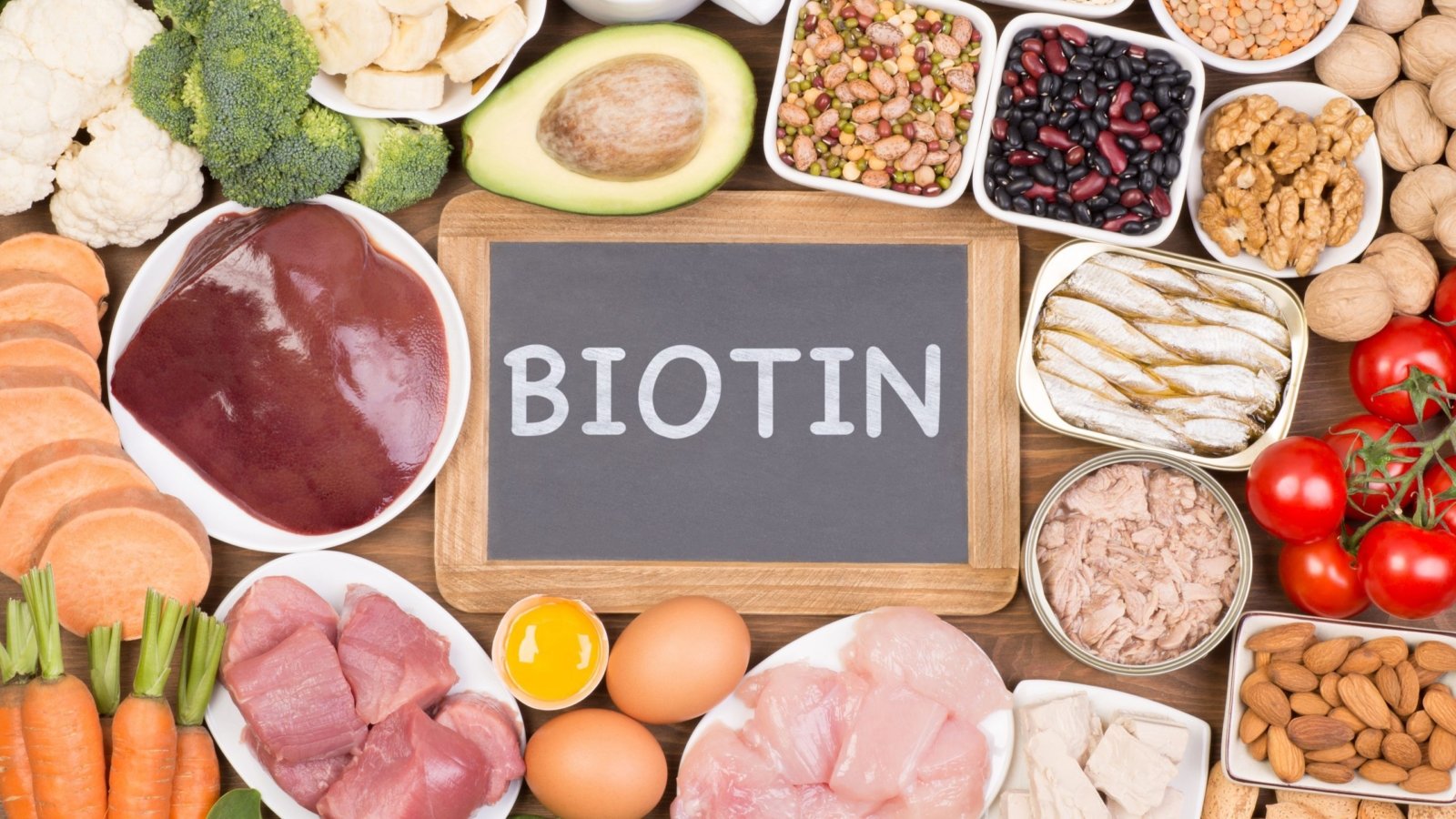Biotin, also known as vitamin B7, is a water-soluble B-vitamin that is essential for a wide range of metabolic processes in the body. These include helping the body break down carbohydrates, fats and proteins.
It plays an important role in the health of your skin, hair and nails.
Also, it is necessary for proper energy production and metabolism, as well as for normal functioning of the nervous system.
It is naturally found in foods such as eggs, dairy products, nuts, legumes and whole grains.
Biotin supplementation is generally safe and well-tolerated; however, it can interfere with certain medications, so it is important to speak to your doctor before taking biotin supplements.
Food Sources of Biotin
Some of the best natural sources include:
Eggs: Egg yolks contain high amounts of biotin, making them an excellent source of this vitamin.
Organ meats: Organ meats such as liver and kidney
Nuts and Seeds: Almonds, walnuts, and sunflower seeds are all good sources of vitamin B7.
Avocados: Avocados are full of biotin, as well as other essential vitamins and minerals.
Legumes: Chickpeas, lentils and peanuts are all good sources of vitamin B7.
Mushrooms: Shiitake and oyster mushrooms are particularly high in this vitamin.
Dairy Products: Milk and yogurt are both good sources of vitamin B7.
Bananas: Bananas are full of biotin, as well as other vitamins and minerals.
Root vegetables: Root vegetables like sweet potatoes and carrots are a great source of vitamin B7.
Recommended Dietary Allowance (RDA)
According to Harvard T.H. Chan School of Public Health, a Recommended Dietary Allowance (RDA) does not seem to exist for biotin, as there is hardly any credible evidence to suggest that a certain daily requirement is needed for healthy people.
However, there is an Adequate Intake (AI) level on a daily basis, which is:
Health Benefits of Biotin
Biotin has numerous health benefits. Here are some of the most important:
If you are looking to take advantage of all that biotin has to offer, consulting with your doctor is the best way to determine the right dosage and supplement for your needs.
Symptoms of Biotin Deficiency
Biotin deficiency is a rare but serious condition that can cause a range of physical and mental symptoms.
Some of the most common symptoms include:
If you are experiencing any of these symptoms, it is important to seek medical advice.
Biotin deficiency is treatable with dietary changes and supplements.
Causes
Biotin is essential for human health, and a deficiency in this vitamin can lead to a range of symptoms.
Here is a list of some of the possible causes of biotin deficiency:
Poor diet: Biotin is found in many foods, such as eggs, milk, nuts and legumes. A diet lacking in these foods can lead to this deficiency.
Medical conditions: Certain medical conditions can interfere with the body’s ability to absorb biotin. These include Crohn’s disease, HIV/AIDS, alcoholism and long-term use of antibiotics.
Genetic disorders: Some genetic disorders can cause the deficiency, such as biotinidase deficiency and multiple carboxylase deficiency.
Medications: Certain medications can interfere with biotin absorption, such as anticonvulsants and antacids.
Diagnosis
There are two important tests to diagnose biotin deficiency: blood test and urine test.
The blood test measures the levels of biotin in your blood, while the urine test measures your body’s ability to absorb biotin (Urinary Excretion of 3-Hydroxyisovaleric Acid)
Based on these tests, your doctor may recommend dietary changes or supplemental biotin to help restore your levels.
Treatment
The most common treatment for biotin deficiency is supplementation with a biotin supplement.
Biotin supplements are available in a variety of forms, including capsules, tablets and liquid drops.
Taking the supplement regularly can help restore your body’s biotin levels and correct the deficiency.
Also, your doctor may recommend dietary changes to ensure you’re getting enough of the vitamin in your diet, such as eating more eggs, nuts and seafood.
Finally, if your deficiency is due to an underlying medical condition, your doctor may prescribe medications to address the underlying issue.
Side Effects of Biotin Use
While it is generally considered safe, there are some potential side effects of taking biotin. These include digestive issues such as nausea, vomiting and diarrhea.
In rare cases, it can cause an allergic reaction which may result in skin rash, itching and hives.
As with any supplement, it is important to talk to your doctor before starting a biotin regimen. Your can provide guidance on the appropriate dosage and help you monitor for potential side effects.
If you have a question related to this blog post, write to us here and we will update this post with a response.
Sources: Harvard T.H. Chan School of Public Health, Medical News Today, News Medical, WebMD (1, 2), Healthline (1, 2), Mount Sinai, National Library of Medicine (1, 2, 3, 4), St. Luke’s, PubMed, NIH, PeaceHealth, Drugs.Com
If you have any more questions, please feel free to write to us at support@nugenomics.in or call us directly at +91 9176655912
You can also visit Here to know more about how we can help you and make your life better.
 Cart is empty
Cart is empty 
Add a Comment